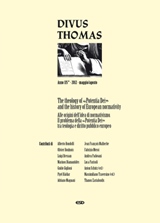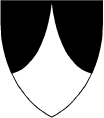
The theology of «Potentia Dei» and the history of European normativity
ISBN:9788870948240
Pagine:480
Dimensione:150 x 210
Soggetti:Teologia
Anno:2012
Rilegatura:brossura
Con l'avvento dell'età moderna, politica e diritto si dotano di nuovi statuti. Analizzandoli, la migliore storiografia dell'ultimo secolo ha preferito un'interpretazione nel segno della discontinuità all'idea che il secondo millennio d.C. costituisca un tutt'uno omogeneo. Oggi, tuttavia, una tale posizione è chiamata in causa. Le tumultuose innovazioni che hanno accompagnato la nascita degli Stati assoluti potrebbero infatti essere il risultato, inatteso e involontario, di un adeguamento ai tempi dell'ordine politico esistente anziché rispondere ad un qualsiasi «programma rivoluzionario». Si potrebbe anzi dire che quel che, nella storia del pensiero giuridico-politico, siamo soliti definire come l'eredità di concezioni pre-moderne sia piuttosto laboratorio che vittima della nascente modernità. In un simile scenario, la distinzione medievale di due forme di potere in Dio (potentia absoluta e ordinata) rappresenta un punto cruciale nell'emergere di una nuova nozione di Potere. Laddove il potere ordinato è il prodotto di una condotta legittima, il potere assoluto chiude invece un altrimenti «ingovernabile» orizzonte del possibile, proclamando al contempo il proprio dominio sul contingente. L'oscillazione tra queste due forme di potere dà luogo ad una dinamica tuttora irrisolta.
At the threshold of modernity, the programs of politics and the justifications of law assume new forms: analyzing them, the best historians of the last century dismissed the idea that the second millennium AD was one integrated bloc. Today, their counter-interpretation in the sign of discontinuity is being summoned. Rather than to any «revolutionary programme», what the tumultuous innovations of the age of the rising State system might respond to are the unintended collateral effects of unrehearsed and makeshift repair interventions imposed by a chain reaction of newly emerging interdependent problem situations. In this view, the laboratory of the innovations that we call modernity might be the legacy, rather than the victim, of pre-modern conceptions. The late mediaeval distinction of two powers in God (potentia absoluta, potentia ordinata) has made a wide career in the new culture of earthly Power. Ordered power refers to an «ethically» acceptable or legitimate use of power, absolute power closes an otherwise «ungovernable» horizon by proclaiming an unfailing mastery even over the contingent. Their oscillation gives rise to a dynamics to which we are still subject.
